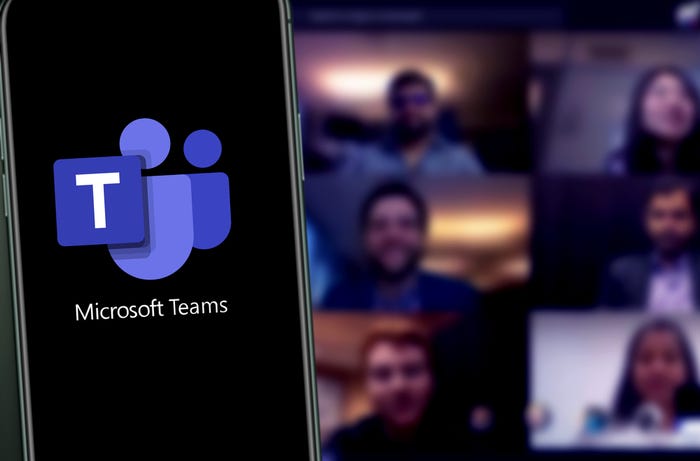Microsoft Teams No Longer 'Free': What It Means for the Channel
No longer free: UCaaS and Microsoft Teams Experts say the move does not come as a surprise and will benefit the channel community.

DANIEL CONSTANTE/Shutterstock
Steven Karachinsky, who heads the UCaaS-focused Ziro, believes that With Microsoft Teams no longer "free," there will be no impact on partners.
"It shouldn't come as a surprise, and I think it was inevitable," said Karachinsky. "Any Microsoft supporters and players like us saw it coming."
So is this move good or bad for partners? Answering that very query swiftly, he said it doesn't make a difference one way or another.
"I think with Microsoft Teams no longer "free," this ends up becoming a commercial play at the end of the day," the UCaaS exec expressed.
Karachinsky says what matters for partners and customers is concentrating on delivering "best-of-breed experiences, and not best-of-breed products," calling Microsoft an "unstoppable force right now."
They have built out their offer to cater to "exactly what customers want," Karachinsky said.
"If anything, this can help a partner because it will make the significance of comprehending licensing much more worthwhile," Karachinsky told Channel Futures.
He likewise informed us that with Microsoft Teams no longer "free," things are "business as usual" for partners who concentrate on the Microsoft ecosystem.
"And for anyone hoping it would create confusion or a mass exodus, they will only be disappointed because I don't hear any customers complaining. It is only Microsoft competitors," said Karachinsky.
While there is the possibility that Microsoft might lose some customers over the move, the director of program management at SIPPIO, Steve Forcum, said with Microsoft Teams no longer "free," there is one fat bundle of partner opportunity.
"I think the snap reaction from the channel will be, "finally," because their customer has Teams, but the reality is customers who use Teams aren’t going to just switch from it now and they are trying to sell them Zoom or RingCentral. Wow with a cost of Teams — they can calculate ROI," Forcum told Channel Futures.
The Copilot opportunity before the channel is also what Forcum calls "massive."
Forcum said he sees it as a way for the channel to sell consulting services on how to get the most out of the generative artificial intelligence-fueled assistant, which he said is as beneficial as having another member of staff who only costs $30 to employ.
The Copilot opportunity before the channel is also what Forcum calls "massive."
Forcum said he sees it as a way for the channel to sell consulting services on how to get the most out of the generative artificial intelligence-fueled assistant, which he said is as beneficial as having another member of staff who only costs $30 to employ.
Following legislation in the European Union that said Microsoft Teams will no longer be free, unbundling Microsoft Teams from its 365 offer, the software goliath said it would take the same action in North America, forming a separate pricing arrangement for 320 million Microsoft Teams users.
Now, existing Microsoft customers can keep existing bundled licensing or switch to new unbundled licenses when they are up for renewal. Microsoft says new customers must buy Teams separately at a list price of $5.25 per user, per month.
Under its previous model, Microsoft Teams was "free," or included in the price of a Microsoft 365 license. In 2020, then-Slack CEO Stewart Butterfield said Microsoft including Teams in its 365 bundles wasn't fair — and misleading.
Microsoft then changed how it reported its users, switching to monthly active users over daily active users. Butterfield argued that there was no way to compete with the tech giant if it gave away its Teams offer when a customer bought a 365 bundle.
With Microsoft Teams no longer "free," Keith Dennis, chief of staff at Six 8 Trusted Advisors, believes Zoom stands to benefit from the move.
"Zoom CEO Eric Yuan will need to give Salesforce CEO Marc Benioff (which owns Slack) an extra special gift this holiday season," Dennis told Channel Futures. "Zoom stands to profit from this move to unbundle teams in the EU and more importantly in North America."
Dennis believes that if the Microsoft Teams licensing and usage economics pencil out equally or close to Zoom, it's "a no-brainer" to select Zoom.
"I have been scratching my head for a few years now as to why CIOs and the organizations they support are OK with a 99.9% [service-level agreement] − which Microsoft has repeatedly missed − when they can get a far better user experience and contractually based uptime guarantee from Zoom, and the likes of RingCentral and Dialpad," Dennis shared.
We have plenty more to dissect with the help of industry experts, so check out the slideshow above to see what they say about the move by Microsoft.
Read more about:
AgentsAbout the Author(s)
You May Also Like


